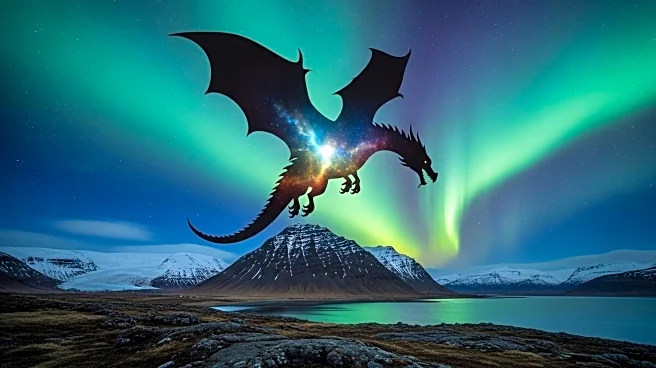What is the story about?
What's Happening?
Geoscientists from the University of Iceland and ÍSOR have concluded that oil exploration in Iceland's Dreki area, known as the Dragon area, is unlikely to be economically viable. The region's thick basalt cover and fractured geology present significant technical challenges and high costs for drilling. Despite past interest and exploration licenses issued by Iceland, evidence of commercially viable oil or gas deposits remains lacking. The Icelandic Chamber of Commerce recently advocated for new incentives to promote oil development, but experts argue that the economic prospects are poor.
Why It's Important?
The findings by geoscientists highlight the challenges and risks associated with oil exploration in geologically complex regions. The lack of viable deposits in the Dragon area suggests that further investment may not be justified, impacting Iceland's potential to develop its oil resources. This analysis may influence government and industry decisions regarding resource exploration and development, emphasizing the need for careful consideration of economic and environmental factors.
What's Next?
With the Dragon area's prospects deemed economically weak, Iceland may shift focus to other resource opportunities in the North Atlantic. The government and industry stakeholders may explore alternative energy sources or technologies that align with Iceland's environmental goals and economic interests. The debate over oil exploration incentives may continue, with potential implications for policy and investment strategies.
Beyond the Headlines
The discussion around oil exploration in Iceland reflects broader global challenges in balancing resource development with environmental sustainability. As countries seek to diversify energy sources and reduce reliance on fossil fuels, the emphasis on renewable energy and innovative technologies becomes increasingly important. Iceland's experience may serve as a case study for other nations facing similar decisions about resource exploration and environmental impact.















